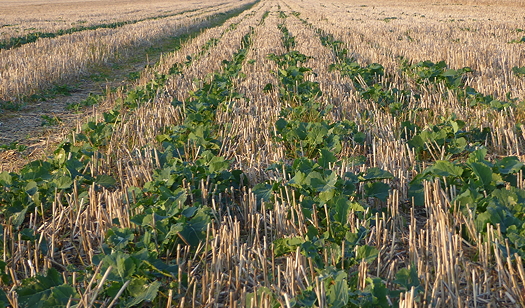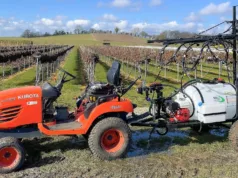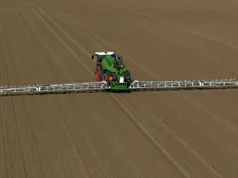The value of on-farm trials is becoming increasingly important for arable farmers in providing them with confidence in product performance at farm level.
For one arable farmer in Cambridgeshire, this is exactly what he’s done this year.
“We’re farming 40ha of arable land over very heavy soils, and for us, slugs are a big issue,” says Rob Witherow, who’s recently returned home to the family farm after working in the industry.
“Traditionally, we’ve used metaldehyde slug pellets, and although we’ve had no trouble with efficacy, and they’ve work well for us, we’re aware that metaldehyde is an ‘at risk’ active substance.
“I don’t want to be in a position where the active is banned and we haven’t explored any other options. Hence the reasoning behind us carrying out our own field trials, as often the only way to be convinced by a product is to see the results for yourself,” he says.
Mr Witherow says that this year, for the first time, they’ve trialled Certis’ ferric phosphate slug pellet, Sluxx HP. “For us it’s all about being able to trial and understand another mode of action, and see how it stacks up.
“We’ve therefore done an informal split field trial in our oilseed rape to see the visual differences between the two types of pellets, and so far so good. Plant populations are remaining stable, and there’s little damage on the leaves, which shows it’s doing its job, and performing on a par.”

He adds that the strong environmental profile of Sluxx HP is an extra bonus.
“Water pollution is always at the front of our minds, so we want to ensure we’re not heightening the problem with our activities,” he says.
“With no buffer zone restrictions, and no residual issues, Sluxx HP is a flexible product that has the potential to work well as part of our system.
“We’re hoping to trial more Sluxx HP later this year, as the temperature cools, to see how it performs in these conditions. It may be that in the future we look to use a mixture of actives to give us more flexibility and maintain a good level of control throughout the year,” says Mr Witherow.
For more information visit: www.certiseurope.co.uk.










